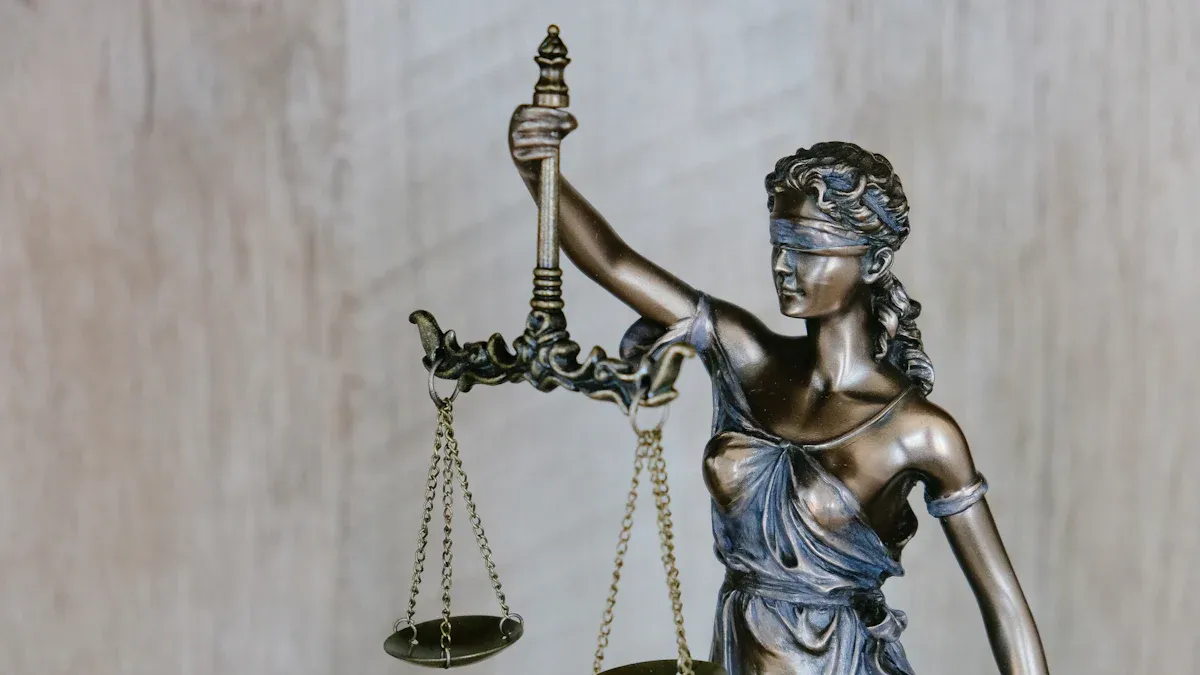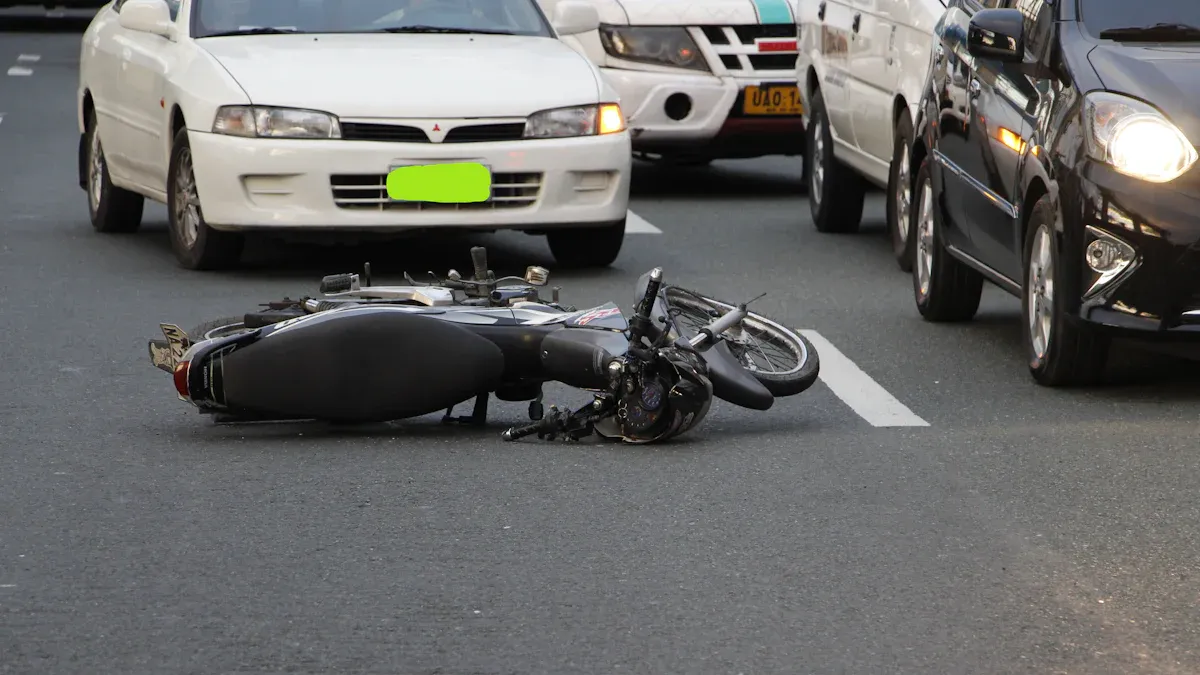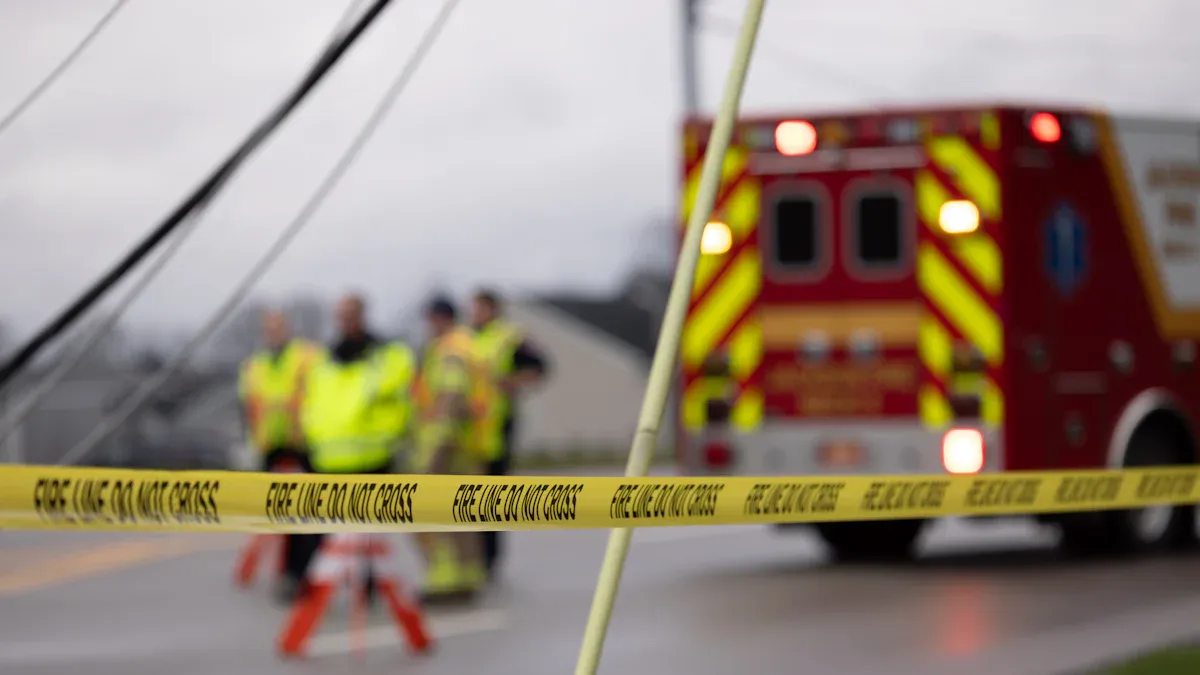Image Source: unsplash
Mistakes in injury cases can hurt your claim’s result, and understanding the Common Legal Pitfalls in Personal Injury Cases and How to Avoid Them is crucial. Common mistakes include not seeing a doctor, losing evidence, or waiting too long to act. These errors weaken cases and lower payouts. Acting fast, staying consistent, and getting a lawyer can protect your rights and strengthen your case.
Key Takeaways
- Visit a doctor right after an accident, even if you feel okay. This keeps you safe and helps your legal case.
- Save all medical records and proof of your injury. Good records make your case stronger and back up your claims.
- Get a good personal injury lawyer to handle the legal steps. They protect your rights and stop you from making big mistakes.
Not Getting Medical Help Right Away
How It Hurts Your Case
Waiting to see a doctor after an injury can harm your case. Insurance companies may think your injuries are small or not caused by the accident. This doubt can make your claim seem weak and lower your chances of fair payment.
Not getting treated quickly can also make injuries worse. Problems like ongoing pain, trouble moving, or lasting damage can happen. Seeing a doctor early helps prove how serious your injuries are and connects them to the accident. Without quick medical records, it’s harder to fight insurance company arguments.
Some people skip care because they don’t feel pain right away. Adrenaline can hide pain, making them think they’re fine. Others believe they need visible injuries to see a doctor. But even small signs can mean bigger health problems.
Tip: Always see a doctor after an accident, even if you feel okay. A quick check-up protects your health and your legal case.
Keeping Good Medical Records
Having clear and complete medical records is very important. Missing or unclear records can make it easier for others to question your injuries. Your story and the medical reports must match to keep your case strong.
If you wait to document your care, it can raise doubts about your records. Writing down all doctor visits, treatments, and diagnoses right away helps keep things clear. If you had health issues before, make sure they’re noted to avoid confusion later.
Good medical records make your case stronger and show how the accident caused your injuries. A doctor’s quick evaluation gives proof to fight insurance claims and get fair payment.
Note: Save all your medical records and make sure they are clear. These records are key to building a strong injury case.
Not Keeping Evidence Safe
Why Evidence Matters
Evidence is key in personal injury cases. It shows what happened and proves damages. Without it, proving fault or asking for fair payment is hard. Missing evidence can weaken your case and help the other side.
Some evidence often gets lost or ignored, which hurts cases. Examples include:
- Social media posts showing life changes after the accident.
- Weather reports from the day of the accident.
- Videos from nearby cameras or businesses.
- GPS or phone records showing important details.
- Contact info for witnesses not at the scene.
- Records of missed medical appointments.
- Photos of damaged property from different angles.
Keeping this evidence helps build a strong case.
How to Collect and Protect Evidence
Taking steps to save evidence makes your case stronger. Here’s how:
- See a doctor right away to record injuries.
- Take pictures or videos of the accident scene.
- Save damaged items like clothes or property.
- Get contact info and statements from witnesses.
- Ask for police or accident reports.
- Write a diary about your injuries and daily struggles.
- Keep all messages about the accident.
- Request security footage or audio recordings quickly.
- Save work records to show lost income.
- Talk to a lawyer to handle evidence properly.
At the accident scene, act fast. Use cones or flares to keep the area safe. Call emergency services to record details. Take wide and close-up photos of injuries and damage. Write down weather, what you saw, and witness stories. Label and store evidence carefully to keep it safe.
By doing these things, you can avoid one big mistake: not saving evidence.
Talking to Insurance Companies Without a Lawyer
Why It’s Risky
Talking to insurance companies without a lawyer can hurt your case. Insurance workers may seem nice, but they aim to pay less. Without legal help, you might make mistakes that weaken your claim.
Some common mistakes are:
- Giving recorded statements without asking a lawyer first. You might say something wrong or confusing.
- Thinking the insurance company is on your side. This can make you share too much information that hurts your case.
- Saying your injuries aren’t bad or forgetting key details. This can lower how much money you get.
- Signing papers without a lawyer checking them. You might agree to less money than you deserve.
Insurance companies might twist your words or use them against you. Talking too soon without knowing all the facts can cause problems. These risks show why having a lawyer is so important.
How to Talk to Insurance Companies
Handling insurance talks the right way helps your case. A lawyer can speak for you and protect your rights. They make sure everything you say or sign is correct.
Here are some tips:
- Don’t give recorded statements or sign papers without your lawyer.
- Let your lawyer talk to the insurance workers. They know how to get fair deals.
- Keep your answers short and stick to the facts. Don’t share extra personal details.
- Write down every talk with the insurance company, including dates and what was said.
Having a lawyer makes the process easier. Lawyers know how to deal with insurance companies and fight for fair payments. By following these tips, you can avoid big mistakes in your injury case.
Posting on Social Media About Your Case
How Social Media Can Hurt Your Claim
What you post online can affect your injury case. Pictures, comments, or posts might seem harmless but could be used against you. Insurance companies and lawyers often check social media for proof to weaken your claim.
Some posts can cause big problems:
- Photos or videos of activities may make injuries seem fake.
- Posts with dates that don’t match your story hurt trust.
- Jokes or emojis might make injuries look less serious.
- Check-ins at places can show you’re not as hurt as claimed.
Even small things, like saying sorry or admitting fault, can harm your case. Sharing accident details or legal updates gives the other side tools to fight back. Negative posts about others can make you look bad.
Tip: Think of everything online as something that could be misunderstood and used against you.
Smart Social Media Habits During a Case
Being careful online is very important during an injury case. Follow these tips to protect your claim:
- Make accounts private and only share with close friends or family.
- Don’t post pictures, videos, or updates about the accident or injuries.
- Avoid talking about legal issues or chats with your lawyer.
- Take a break from posting until your case is over.
Changing privacy settings helps but isn’t foolproof. Others might still see your posts through shared connections or legal ways. That’s why it’s best to be cautious with everything you do online.
By following these steps, you can avoid one of the Common Legal Pitfalls in Personal Injury Cases and How to Avoid Them—hurting your case through social media.
Missing Legal Deadlines
What Are Statutes of Limitations?
Statutes of limitations are rules about filing injury claims. They set deadlines that differ by state, usually from one to six years. For instance, California gives two years for most cases, but other states may allow more or less time. Missing this deadline can cause big problems.
Filing a claim late means the court will likely reject it. This stops you from getting money for your injuries, no matter how bad they are. Many cases fail each year because people don’t file on time.
Some reasons for missed deadlines include not knowing when the timer starts. It begins right after the accident happens. Others feel confused or unsure about who caused their injuries. Without help from a lawyer, these issues can delay filing and hurt your case.
How to Avoid Missing Deadlines
Being organized helps you meet important deadlines. Save all papers like medical bills, letters, and witness details. Preparing and filing legal forms quickly is also very important.
Getting a skilled personal injury lawyer can really help. Lawyers know the deadlines in your state and make sure everything is done on time. Acting fast after an injury protects your rights and improves your chances of fair payment.
By learning about these rules and staying prepared, you can avoid one of the biggest mistakes in personal injury cases—missing legal deadlines.
Not Hiring a Skilled Personal Injury Lawyer
Why Legal Help Matters
Getting a skilled personal injury lawyer can change your case’s result. These lawyers know the rules and how courts work. They help you handle insurance claims, medical papers, and legal forms. This takes stress off you while you recover.
A lawyer also gives support during tough times. They answer your questions and help you feel sure about your case. Many personal injury lawyers only get paid if you win money. This makes hiring a lawyer possible for most people.
Without a lawyer, people often make big mistakes. Common errors include talking to insurance workers alone, signing papers without knowing what they mean, or agreeing to less money too soon. These mistakes can hurt your case and lower your payment.
Picking the Best Lawyer
Choosing the right lawyer is very important. Find someone with lots of experience in personal injury cases. Read reviews and check their past case results to see how good they are. Good communication is key. A great lawyer listens to you and explains things clearly.
Look into their qualifications to find trusted lawyers. Ratings from places like Martindale-Hubbell or Super Lawyers can help. Don’t pick a lawyer just because of TV ads or low prices. Instead, choose someone with trial experience and a strong reputation.
By hiring a good lawyer, you can avoid one of the biggest mistakes in personal injury cases—trying to handle the legal process without expert help.
Staying away from common mistakes in injury cases helps your rights and claim. Important steps are hiring a lawyer, saving evidence, and recording the accident details. Talking clearly and not rushing into deals is also important. Getting a good lawyer helps you handle tough parts and get fair payment.
FAQ
What should someone do right after an accident?
They should see a doctor quickly to check for injuries. Take pictures of the accident scene to save details. Collect names and contact info from any witnesses. Call a personal injury lawyer to protect your rights.
Can someone handle a personal injury case alone?
It’s possible, but it’s not a good idea. Lawyers know the law and deal with insurance companies. They help you get fair money for your injuries and losses.
How long does a personal injury case take?
It depends on the case. Easy cases might finish in a few months. Harder cases that go to court can take years to settle.




